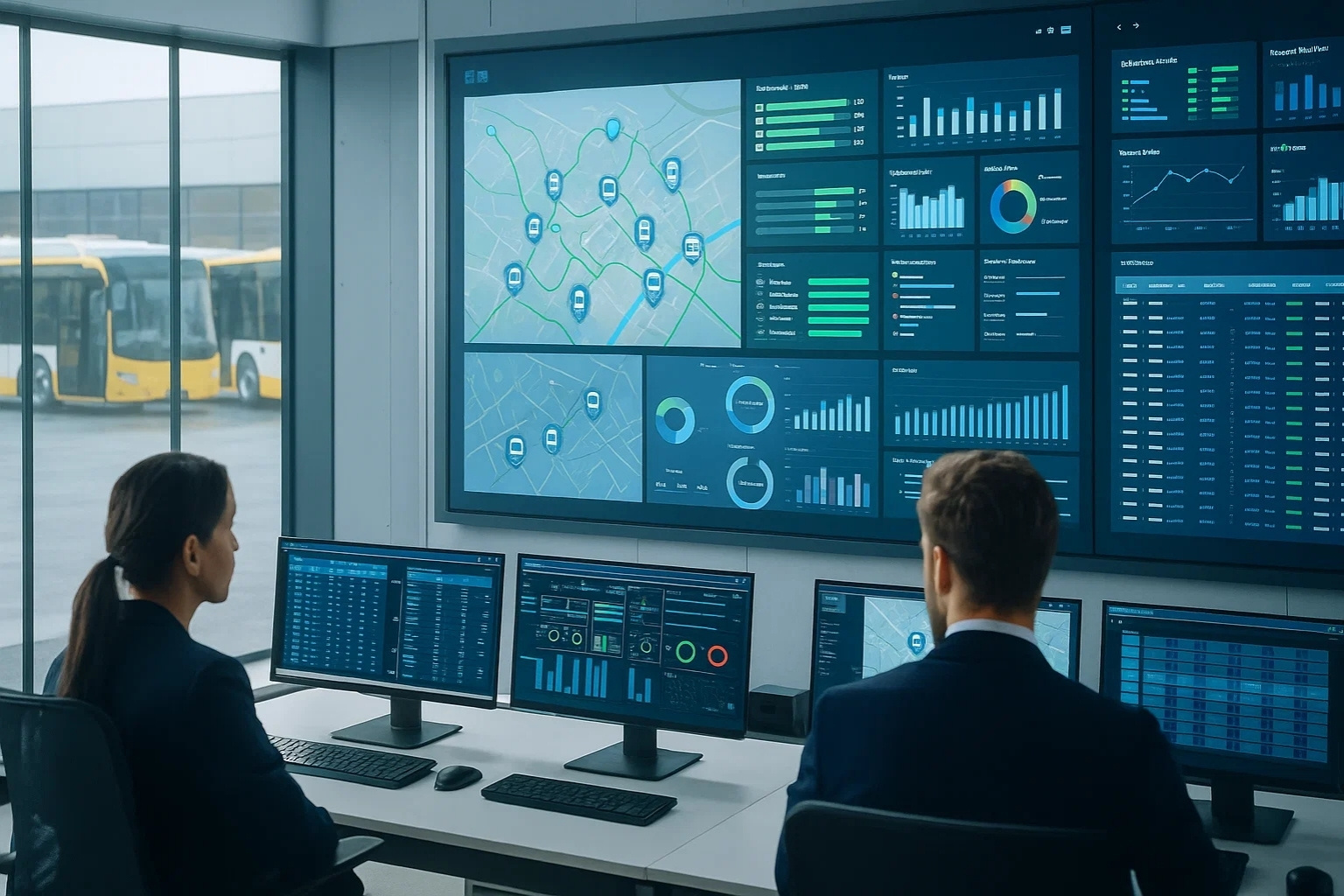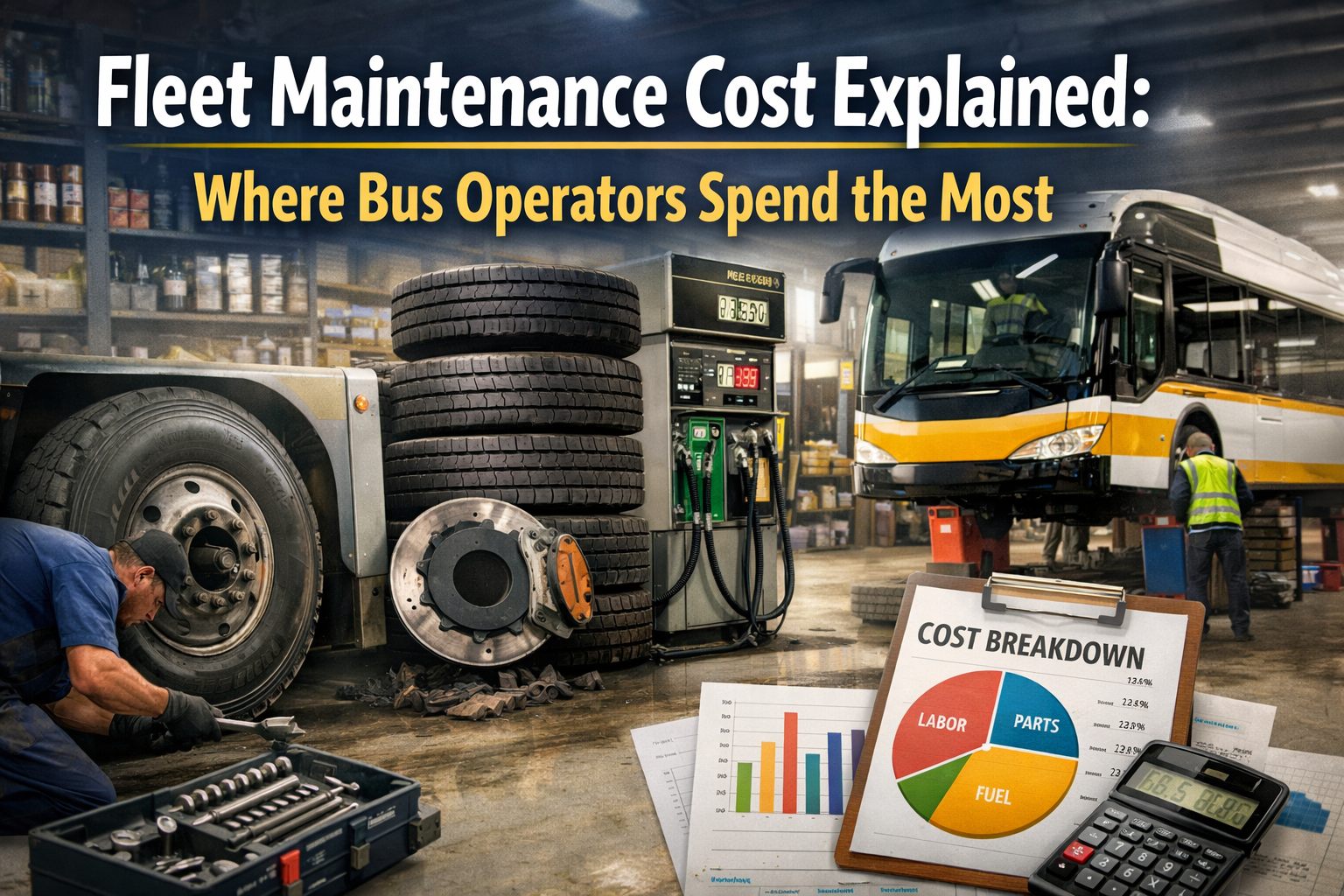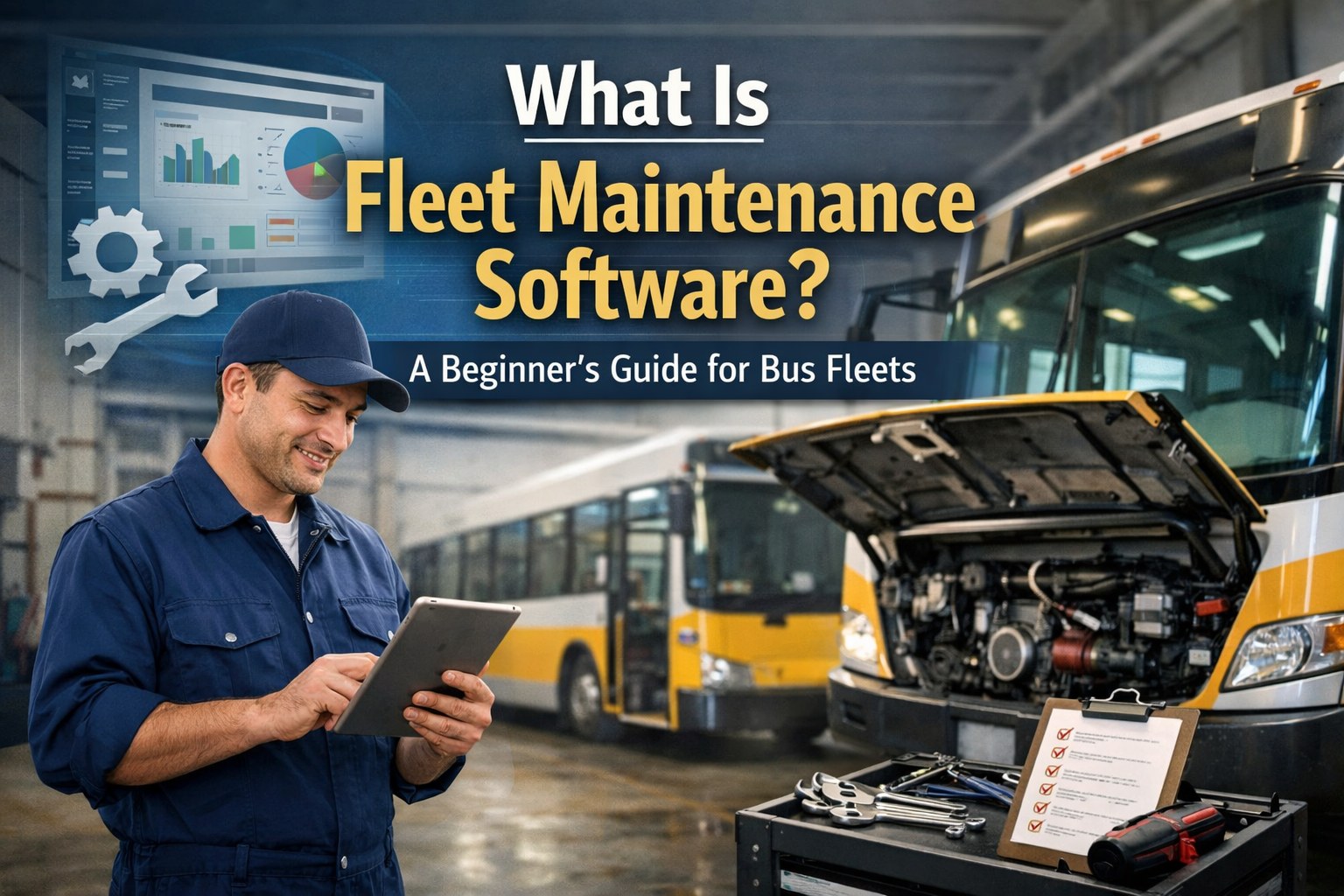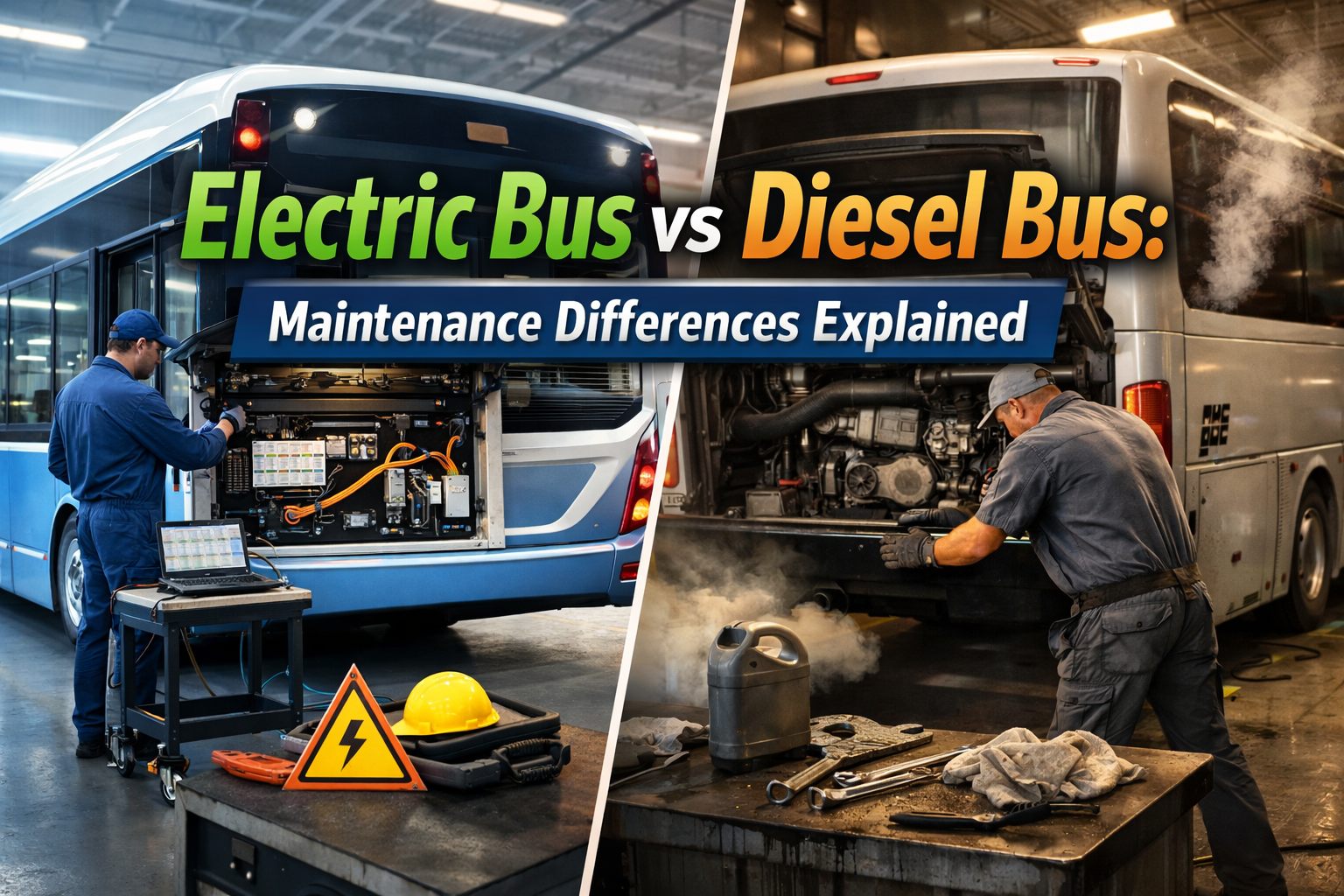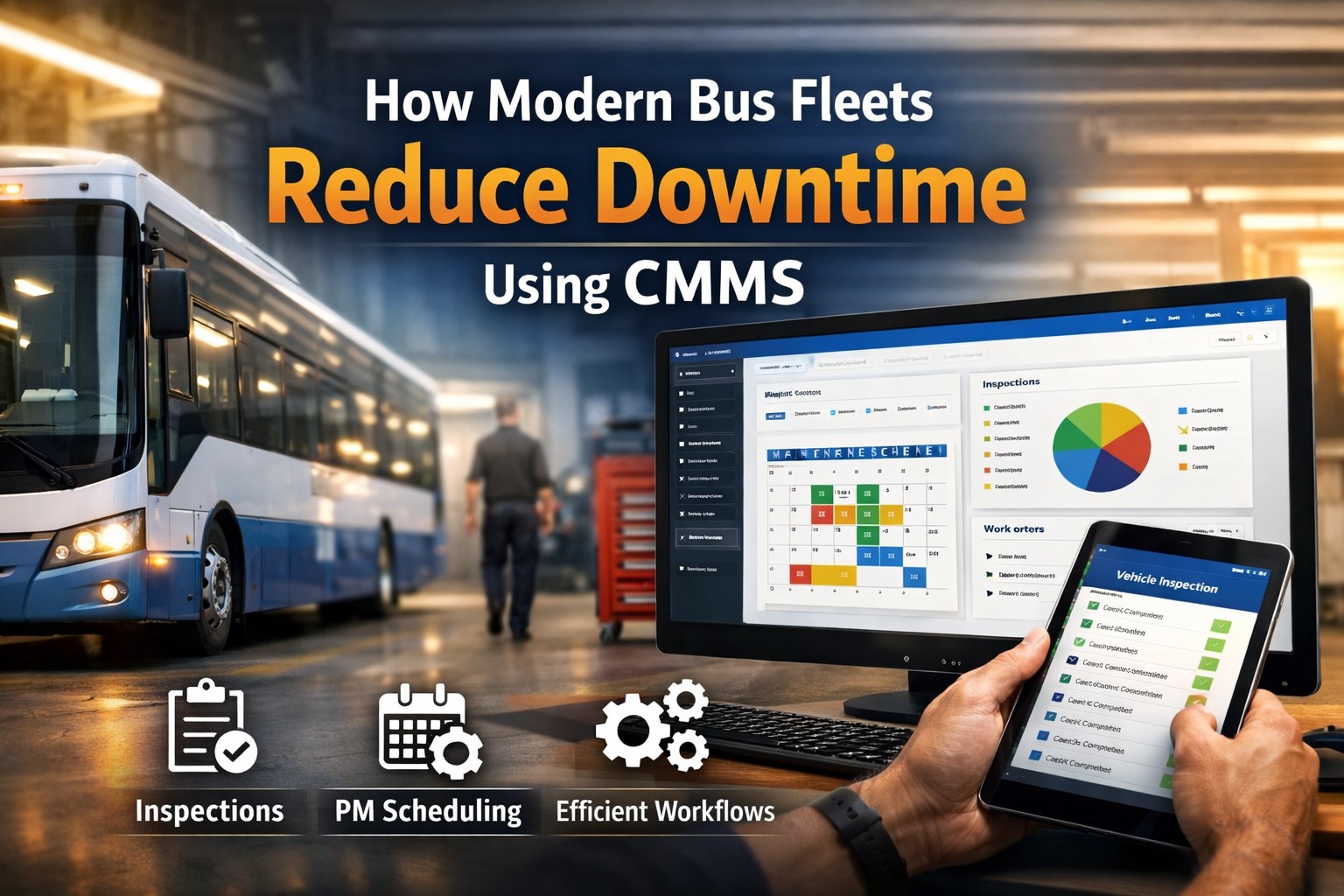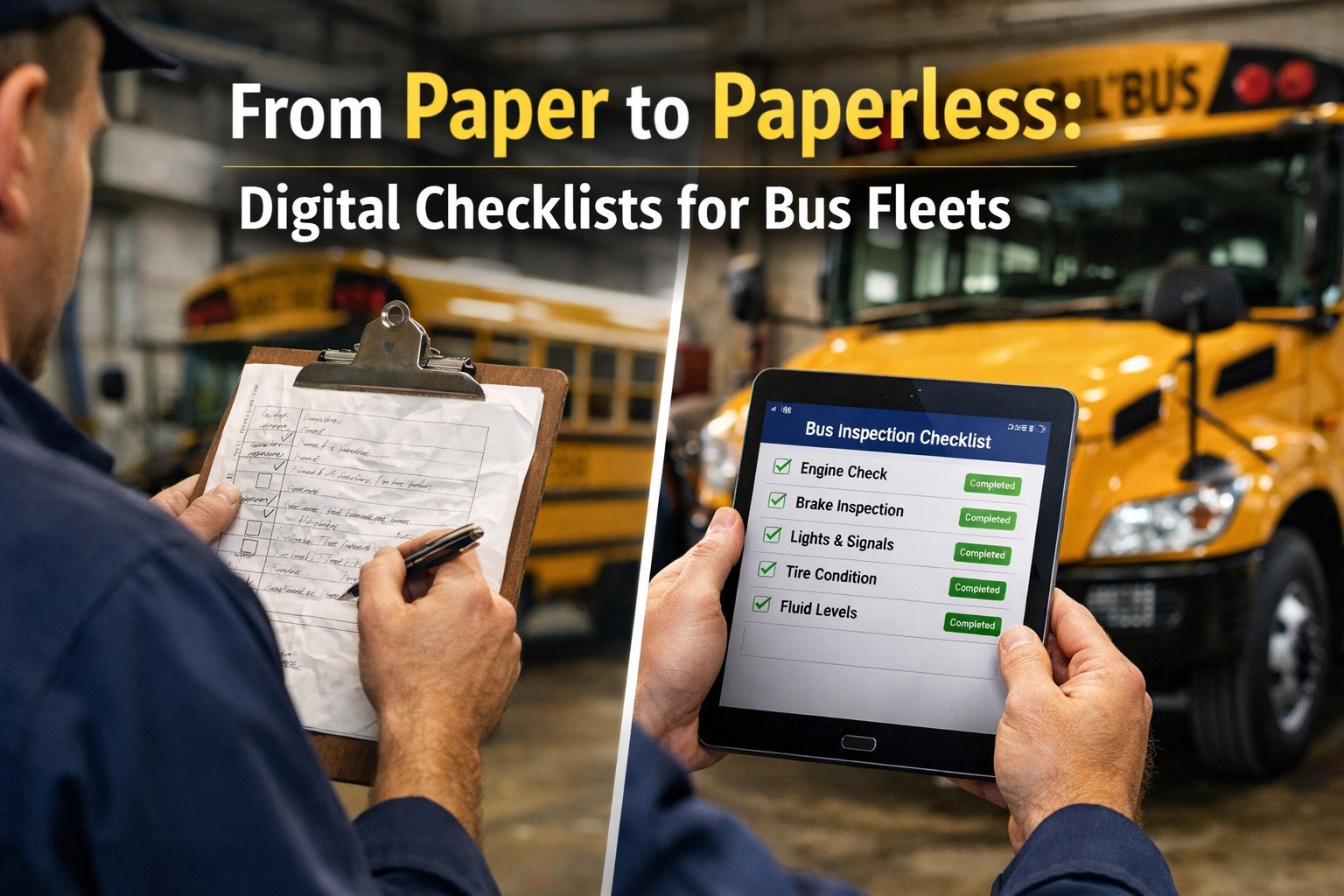In today's fast-paced transportation landscape, managing a fleet of buses and ensuring seamless passenger transport requires more than traditional logistics approaches. US manufacturing professionals entering the transportation sector are discovering that modern fleet management systems are no longer optional—they're essential for competitive operations. Whether you're managing school buses, public transit, or private passenger services, the right fleet software can transform your operations from reactive to proactive, saving millions in operational costs while improving passenger satisfaction.
The integration of Computerized Maintenance Management Systems (CMMS) with advanced fleet tracking technologies has revolutionized how transportation companies operate. These sophisticated platforms combine real-time GPS tracking, predictive maintenance scheduling, driver safety monitoring, and passenger management into unified systems that provide unprecedented operational visibility. For manufacturing professionals transitioning into transportation services, understanding these technologies is crucial for building efficient, profitable, and sustainable fleet operations.
Advanced CMMS Systems: The Backbone of Modern Fleet Operations
Computerized Maintenance Management Systems have become the cornerstone of successful bus fleet operations across the United States. These powerful platforms go far beyond simple maintenance scheduling, offering comprehensive solutions that track every aspect of vehicle health, from engine diagnostics to tire pressure monitoring. For manufacturing professionals accustomed to precision and efficiency, CMMS platforms provide the same level of operational control in fleet management.
Modern CMMS systems integrate seamlessly with vehicle onboard diagnostics, pulling real-time data on engine performance, fuel consumption, and component wear. This continuous monitoring enables predictive maintenance strategies that prevent breakdowns before they occur. Fleet managers can schedule maintenance during off-peak hours, minimize vehicle downtime, and extend the operational life of their buses by up to 30%. The result is a more reliable service that keeps passengers moving and reduces emergency repair costs.
The financial benefits of implementing a robust CMMS cannot be overstated. Transportation companies report average maintenance cost reductions of 35% within the first year of implementation. These savings come from optimized parts inventory management, reduced emergency repairs, and extended vehicle lifespans. For US manufacturing professionals evaluating fleet management opportunities, CMMS technology represents a proven pathway to operational excellence and improved profitability.
Real-Time GPS Tracking and Route Optimization Technology
GPS tracking technology has evolved from simple location monitoring to sophisticated systems that provide comprehensive operational intelligence. Today's fleet management platforms use advanced algorithms to analyze traffic patterns, passenger demand, and vehicle performance data in real-time. This enables dynamic route optimization that responds to changing conditions throughout the day, ensuring passengers reach their destinations efficiently while minimizing fuel consumption and vehicle wear.
Route optimization goes beyond finding the shortest path between stops. Modern systems consider factors like passenger pickup patterns, traffic congestion, construction zones, and even weather conditions to create the most efficient routes possible. Fleet managers can simulate different scenarios, test new routes virtually, and implement changes based on data-driven insights. This level of optimization typically results in 15-20% reductions in fuel costs and similar improvements in on-time performance.
For school transport operations, GPS tracking provides an additional layer of safety and accountability. Parents can track their children's buses in real-time through mobile apps, reducing anxiety and improving communication. Automated alerts notify stakeholders of delays or route changes, while geofencing technology ensures buses follow approved routes and stop only at designated locations. This comprehensive tracking capability has become a competitive differentiator for transportation providers serving safety-conscious markets.
Ready to transform your fleet operations with cutting-edge management technology? Discover how our advanced CMMS and fleet tracking solutions can revolutionize your transportation business and deliver measurable ROI from day one.
Getting StartedBook a Demo
Driver Safety Management and Performance Monitoring
Driver behavior directly impacts passenger safety, fuel efficiency, and vehicle longevity. Modern fleet management systems incorporate sophisticated driver monitoring technologies that track acceleration patterns, braking habits, speed compliance, and even driver fatigue indicators. This data enables fleet managers to identify training opportunities, recognize top performers, and create a culture of safety excellence throughout their organizations.
Advanced telematics systems provide real-time feedback to drivers through in-cab displays, helping them adjust their driving behavior immediately. Gamification features turn safe driving into a friendly competition, with leaderboards and rewards programs that motivate continuous improvement. Studies show that implementing driver safety monitoring systems can reduce accidents by up to 50% and lower insurance premiums by 15-25%, creating significant value for fleet operators.
AI-powered fleet tools take driver safety to the next level by predicting potential incidents before they occur. Machine learning algorithms analyze historical data to identify risk patterns, alerting managers to drivers who may need additional training or support. This proactive approach to safety management protects passengers, reduces liability exposure, and demonstrates a commitment to excellence that attracts quality drivers to your organization.
Compliance Management and Regulatory Reporting
Navigating the complex web of federal, state, and local transportation regulations poses significant challenges for fleet operators. Modern fleet compliance software automates much of this burden, tracking driver hours of service, vehicle inspection schedules, and maintenance records in accordance with DOT requirements. These systems generate audit-ready reports at the click of a button, transforming compliance from a time-consuming chore into a streamlined process.
Automated compliance tracking ensures that no critical deadline is missed. The system alerts managers when driver medical certificates need renewal, when vehicles require inspection, or when any compliance parameter approaches its limit. This proactive approach eliminates the risk of costly violations and service interruptions. For manufacturing professionals accustomed to strict quality standards, these compliance tools provide familiar structure and accountability in fleet operations.
Electronic logging devices (ELDs) integrated with fleet management systems have revolutionized hours of service compliance. These devices automatically track driving time, ensure mandated rest periods, and prevent violations that could result in significant fines or loss of operating authority. The data collected also provides valuable insights into route efficiency and driver utilization, enabling better resource allocation and improved profitability.
Integration of Fleet Automation and AI Technologies
Artificial intelligence and automation are rapidly transforming fleet management from reactive to predictive operations. AI algorithms analyze vast amounts of operational data to identify patterns and opportunities that human managers might miss. From predicting component failures weeks in advance to optimizing driver assignments based on performance history, AI fleet tools deliver insights that drive continuous improvement across all aspects of fleet operations.
Automated dispatch systems use AI to match vehicles and drivers with routes based on multiple factors including vehicle capacity, driver qualifications, and passenger needs. These systems can respond to last-minute changes, automatically reassigning resources to maintain service levels when vehicles break down or drivers call in sick. This level of automation reduces administrative burden while improving service reliability and customer satisfaction.
Looking ahead, fleet automation continues to evolve with technologies like automated vehicle inspections, predictive fuel management, and even preliminary autonomous driving features. Manufacturing professionals entering the fleet management space have the opportunity to leverage their automation expertise to build next-generation transportation operations that set new standards for efficiency and reliability.
The transformation of bus and passenger transport through advanced fleet management technology represents a paradigm shift in how transportation services operate. For US manufacturing professionals, the principles of efficiency, quality control, and continuous improvement that drive manufacturing excellence translate directly to fleet management success. By embracing CMMS systems, GPS tracking, route optimization, and AI-powered analytics, forward-thinking operators are building transportation networks that deliver superior service while achieving unprecedented operational efficiency.
Success in modern fleet management requires more than just implementing technology—it demands a commitment to data-driven decision making and continuous improvement. The tools available today provide the foundation, but it's the strategic application of these technologies that separates industry leaders from the competition. As you evaluate fleet management solutions for your operation, consider not just the immediate benefits but the long-term potential for growth and innovation that comprehensive fleet software enables.
Frequently Asked Questions
Q: What makes bus CMMS systems essential for modern fleet operations?
A: Bus CMMS systems are essential because they transform maintenance from reactive to predictive, reducing breakdowns by up to 75% and cutting maintenance costs by 35%. These systems track every aspect of vehicle health, automate maintenance scheduling, manage parts inventory, and ensure compliance with safety regulations. By preventing unexpected failures and optimizing maintenance intervals, CMMS platforms keep buses running reliably while significantly reducing operational costs.
Q: How do CMMS systems improve passenger safety and satisfaction?
A: CMMS systems enhance passenger safety by ensuring vehicles are properly maintained and inspected according to strict schedules. They track critical safety components, alert managers to potential issues before they become hazards, and maintain detailed maintenance histories for compliance. This proactive maintenance approach results in fewer breakdowns, more reliable service, and increased passenger confidence. Studies show that fleets using CMMS experience 50% fewer service disruptions, directly improving passenger satisfaction ratings.
Q: What ROI can fleet operators expect from implementing bus CMMS software?
A: Fleet operators typically see ROI within 6-12 months of CMMS implementation. Average benefits include 35% reduction in maintenance costs, 25% decrease in vehicle downtime, 20% improvement in fuel efficiency through better maintenance, and 40% reduction in emergency repairs. For a 50-bus fleet, this translates to approximately $125,000 in annual savings per vehicle, not including improvements in service reliability and customer retention.
Q: How do modern bus CMMS platforms integrate with other fleet management technologies?
A: Modern bus CMMS platforms seamlessly integrate with GPS tracking systems, telematics devices, fuel management systems, and driver performance monitors to create comprehensive fleet management ecosystems. They pull real-time data from vehicle diagnostics, combine it with location and driver behavior information, and provide unified dashboards for complete operational visibility. This integration enables predictive analytics, automated workflows, and data-driven decision making across all aspects of fleet operations.
Q: What features should manufacturers look for when selecting a bus CMMS system?
A: Key features to prioritize include predictive maintenance capabilities using AI and machine learning, mobile accessibility for technicians in the field, comprehensive parts inventory management, automated compliance tracking and reporting, integration capabilities with existing systems, customizable maintenance schedules based on actual usage data, real-time alerts and notifications, detailed cost tracking and ROI reporting, and scalability to grow with your fleet. The best CMMS platforms also offer dedicated support and training to ensure successful implementation.
